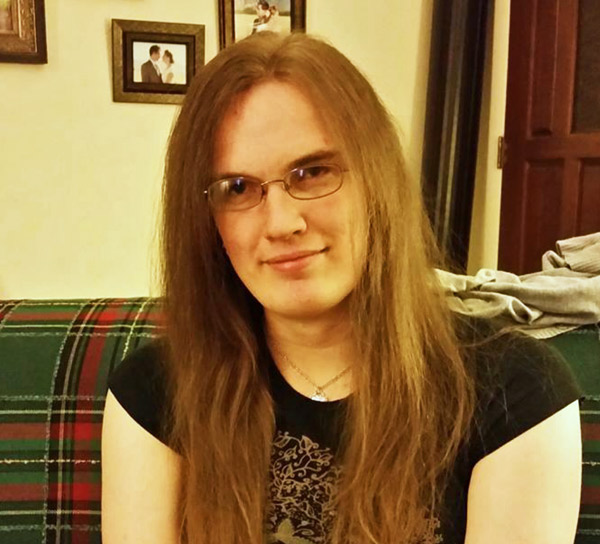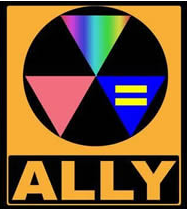‘It can be really lonely’ — Finding LGBTQA support in Cache Valley
December 15th, 2015 Posted in OpinionLOGAN — She took her own life because she felt unwelcome in her own community.
“Everywhere I’d turn I’d see the hatred that society had for us,” Ashley Hallstrom, a 26-year-old transgender woman, wrote in her final Facebook post before killing herself in October. “I had already been poisoned by a society that didn’t understand us and, even worse, didn’t want to even try.”

Ashley Hallstrom’s Facebook photo
Hallstrom, a Cache Valley native, committed suicide by walking in front of a dump truck on U.S. Hwy. 89/91 in South Logan on Oct. 14, just hours after posting her last message online.
Her last request was that people share her story.
“Please help make this change because trans people are everywhere,” Hallstrom wrote. “You may never know who you’re hurting until it’s too late. Please help fix society.”
Hallstrom also said she wanted to be remembered for who she was and not just as a statistic. “People need to know that I’m not just another face of someone they never met,” Hallstrom wrote. “I was alive. I have a family and friends that I love very much and I’m so sorry to them for the hurt this will cause them.”
But the problem is that Hallstrom is a statistic. And her story is not at all uncommon.
Planet Transgender, an online news source for transgender people, reported in October that Hallstrom is the 20th known transgender person to commit suicide in 2015.
This has been a longstanding issue, according to the 2008 National Transgender Discrimination Survey, which reported that 41 percent of transgender people consider suicide in their lifetime, compared to 1.6 percent of the general population.
The 228-page report said 63 percent of the survey participants had experienced a serious act of discrimination that had major impact on a person’s quality of life and ability to sustain themselves financially or emotionally.
The report reiterated Hallstrom’s plea not to see the numbers as simply statistics: they represent real people who live in our communities and face serious trials.
“Imagine losing your home, your job and your children, or being bullied by a teacher, incarcerated because of your gender identity and sexually assaulted,” the report said.
The authors said they hope these numbers “motivate people to take action, rather than despair.”
• • •
USU student Ash Mayberry is contemplating sexual reassignment surgery. She says she transferred to USU from BYU-Idaho because the Logan community was more open to her.
“It still has its negatives,” Mayberry said. “But I love that it’s a really tight-knit in the progressive side of the community. You get pretty close with everyone.”
Mayberry said several organizations give transgender people a welcoming community so they don’t feel alone. “Unless you find that group, it can be really lonely,” Mayberry said.
Mayberry’s favorite group is the Cache Valley Heathens, which organizes activities including hiking and movie showings to include all those who feel like they don’t fit in.
“I found them to be who I wanted to be around,” Mayberry said.
Matthew Staheli, a founder of the Cache Valley Heathens, said that if he could define the group in one word, it would be “friendship.”
USU also created a program specifically to support LGBTQA students. Brooke Lambert, USU’s LGBTQA program coordinator, says the program is there for those who need help.
 “The biggest thing I try and remind everyone is that they are not alone,” Lambert said. “We can provide a great social network and support system.”
“The biggest thing I try and remind everyone is that they are not alone,” Lambert said. “We can provide a great social network and support system.”
Lambert said programs include a student organization called LIFE that organizes social events such as brown bag discussions and movie days, to help students get more involved on campus and in their community.
“A lot of students come in and get involved in one of the programs we offer and then begin to participate in several of our programs,” Lambert said.
The university has also started an Allies in Training program, LGBTQA sensitivity training for faculty, staff, students, and community members.
There also are statewide efforts to reach out to LGBTQA individuals. Sue Robbins, a member of the Board of Directors of the Utah Pride Center in Salt Lake City, says it’s important for transgender individuals who are struggling to know that there are organizations to help them.
The Utah Pride Center supports all of Utah with therapists, support groups and events for socialization, she said.
“Our programs are designs so people can get out and be in a safe environment without discrimination,” Robbins said. “Even though some programs may be a little farther away from Cache Valley, there are always programs and events for people to take part in.”
Robbins also said that the suicide hotlines are a very important resource for anyone who is struggling or knows anyone who is.
University of Utah Healthcare has a statewide crisis intervention hotline at (801) 587-3000. And the Trans Lifeline is a nationwide suicide hotline specifically for transgender people, at (877) 565-8860.
TP
Tags: ALLIES, Ashley Hallstrom, Brooke Lambert, Cache Valley Heathens, LGBTQA, Matthew Staheli, Planet Transgender, Sue Robbins, suicide, transgender, Utah Pride Center

Sorry, comments for this entry are closed at this time.